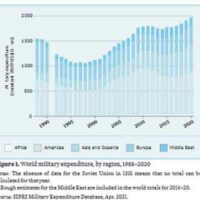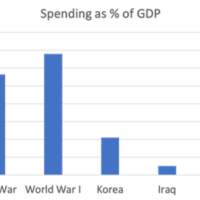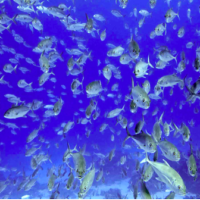-
ACURA Viewpoint: Sanctions and Forever Wars by Krishen Mehta
The U.S. has sanctions against over 30 countries, close to one-third of the world’s population. When the pandemic startedin early 2020, our Government tried to prevent Iran from buying respirator masks from overseas, and also thermal imaging equipment that could detect the virus in the lungs.
-
Star Trek: Progressivism and corporatism don’t mix (part 2)
What is the point of Star Trek? Is it conceivable that all these treks among the stars are in fact subtle ways to spread and justify U.S. policies, ideology, militarism, and interventionism?
-
On Paul Kingsnorth and Unruly Nature
Myth, an early and enduring human technology, will always be with us, in both unconscious and conscious forms. As we now face the slow-motion collapse of the biosphere, the call for new myths is not so much an escapist alternative to concrete analysis and action as a starting point.
-
Marx on technology
The longest chapter in Capital is the fifteenth, on “Machinery and Large-Scale Industry.”
-
Two classes of trans kids are emerging–those who have access to puberty blockers, and those who don’t
For decades, kids who didn’t conform to the gender expected of them were forced to endure treatments designed to “cure” their gender nonconformity. This form of therapy, called “reparative” or “corrective,” typically involved instructing parents–and sometimes teachers–to subject children to constant surveillance and correction.
-
Star Trek: Progressivism and corporatism don’t mix (part 1)
The television series Star Trek has appeared in several iterations with a few handfuls of movies thrown in that have fired the imaginations of viewers of all ages for nigh 55 years.
-
Intellectual monopoly capitalism and its effects on development
What is new with contemporary (global) leading corporations? If gigantic monopolies are a repeated phenomenon in capitalism’s history, why all the fuss we see every day regarding high concentration?
-
Developing countries in the stranglehold of debt. Part 3
The coronavirus pandemic and other aspects of the multidimensional crisis of global capitalism are enough to fully justify suspending debt repayment. Indeed priority must be given to protecting people against ecological, economic and public health disasters.
-
Amidst pandemic and economic sufferings, 2020’s global military spending reached highest level in decades
In 2020, nations were struggling to support their economies through the times of hardships and lockdowns caused by the pandemic. Those efforts apparently did not prevent governments from spending more money on their militaries than ever before in more than three decades, the report said.
-
John Desmond Bernal, Marxism, and the scientific revolution
J. D. Bernal was one of the twentieth century’s great scientific minds, whose work nurtured the imagination of science-fiction writers. In a world where capitalist priorities distort scientific research, Bernal’s Marxist perspective on science is more relevant than ever.
-
A made-in-India shock doctrine, with a little help from Latin America
While an assertive Hindutva deep state was already a work in progress under Narendra Modi, what is striking is how the contingency of the pandemic has been used to mask it with a no-holds-barred steamrolling of market reforms.
-
Climate scientists: concept of net zero is a dangerous trap
Sometimes realization comes in a blinding flash. Blurred outlines snap into shape and suddenly it all makes sense. Underneath such revelations is typically a much slower-dawning process. Doubts at the back of the mind grow.
-
The year of the pandemic
So maybe not just one year of the pandemic.
-
Struggle for the future of food
With so much at stake, representatives of food producers and consumers need to act urgently to prevent governments from allowing a UN sanctioned corporate takeover of global governance of food systems.
-
Understanding development in a Global Value Chain World: Comparative Advantage or Monopoly Capital Theory?
The recent period of globalisation–following the collapse of the Eastern bloc and the integration of China into the world economy–is in essence the period of global value chains (GVCs).
-
175 Years of border invasions: The anniversary of the U.S. war on Mexico and the roots of northward migration
Amid renewed fear mongering about an “invasion” at the U.S.-Mexico border, this week’s 175th anniversary of the 1846–1848 war the U.S. government instigated with Mexico is a reminder that throughout U.S. history, invasions have gone almost exclusively from north to south, not vice versa.
-
Whose agriculture drives disease?
We concur that linking land-use change science, ecology, and epidemiology is a critical step towards developing a more robust understanding of zoonotic diseases. Yet we are wary of the way the authors omit the historical specificities, political economy, and agroecological dynamics of land-use change, and their implications for disease ecologies.
-
Cryptocrap
Bitcoin’s growth from just being a tech curiosity was driven by popular discontent with banks and banking systems, mainly in the U.S. after 2008.
-
Should marine species own the high seas?
To save the ocean, give property rights to the creatures living there.
-
Towards a Marxist theatre
With the onset of the pandemic, the second Black Lives Matter movement, and the economic crisis, theatre as an art form and an industry is in a period of crisis and rebuilding.
















![Flickr, common license, https://www.flickr.com/photos/west_point/48397922177/in/photostream/]](https://mronline.org/wp-content/uploads/2021/04/David-Vine-United-States-of-War-COHA-800x445-1-200x200.jpg)



